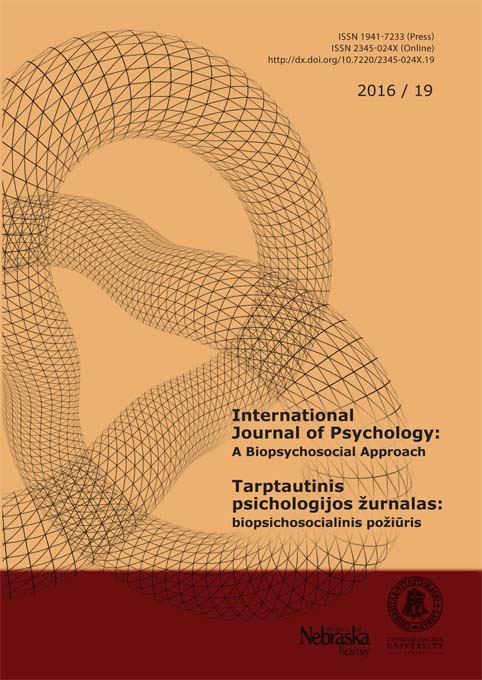Personality Traits of Teachers in Lithuania: Do Preschool and Comprehensive School Educators Differ?
Personality Traits of Teachers in Lithuania: Do Preschool and Comprehensive School Educators Differ?
Author(s): Lina CirtautienėSubject(s): Psychology, Educational Psychology
Published by: Vytauto Didžiojo Universitetas
Keywords: Education; Personality; Age; Teacher;
Summary/Abstract: Background. HR professionals are challenged to improve teachers’ performance. Knowledge about personality traits might help in developing recruitment systems as well as training programs for school staff. Educators’ traits are rarely researched in developing countries. Research Questions. What are the differences of Lithuanian teachers’ personality traits according to age and education? Do personality traits differ between preschool and comprehensive school educators? Purpose. The goal of this study was to explore some personality traits (Social Boldness; Tension; Liveliness; Emotional Stability) of Lithuanian teachers working in preschools and comprehensive schools. Materials and Methods. 184 Lithuanian teachers working in preschools and comprehensive schools participated in the cross-sectional survey. The traits of Social Boldness, Tension, Liveliness, and Emotional Stability were assessed with the help of self-report questionnaire based on the Cattell 16PF theory (Cattell & Mead, 2008; Cattell & Schuerger, 2003). Results. Social Boldness was significantly associated with teachers’ educational level – higher scores of Social Boldness were identified in the group that holds a university degree. Younger teachers reported higher levels of Liveliness and Emotional Stability. In addition to this, preschool and comprehensive school teachers differed in Emotional Stability, no other personality differences were found. Conclusions. Teachers’ personality traits can affect teacher’s communication with students, their abilities to consider students’ needs and overcome challenges in the classroom. Gained information could be helpful in human resource management and education: enhance teacher selection processes, teachers’ training and professional development, and improve educational outco.
Journal: Tarptautinis psichologijos žurnalas: biopsichosocialinis požiūris
- Issue Year: 2017
- Issue No: 19
- Page Range: 89-104
- Page Count: 16
- Language: English

